Media | Articles
Six Ways to Sunday: And in the end …
This is mainly a tale of fear. A yearlong story orbiting the anxiety born of knowing that the calendar moves forward regardless of how you feel. Last July, I woke up and realized I was 30 years old. For days after, I worried I would wake up ten years later, suddenly 40, with nothing to show for it.
Then I went to watch a vintage race with a friend. That weekend, something clicked. I stopped thinking about all the things that kept me from trying what I wanted to try. I began scheming to actually reach those places.
Things got out of hand. Project Six Ways to Sunday was born.
The concept was simple: Take my derelict 1989 Honda XR250R into six different forms of racing within a single calendar year: cross-country, motocross, trials, flat track, road racing, and ice. None of which I’d ever tried—before this project, cross-country running was the closest I had come to motorsport. I decided to do everything here, serving as mechanic, rider, and truck driver. The idea was romantic, born of lust for the life of privateer racers 50 years ago, when someone with a motorcycle, a truck, and a small set of tools could go out without much money and compete year-round.
I wondered: Was that still possible in 2021? More important, was it worth doing?
Marketplace
Buy and sell classics with confidence
Well, I did it. The sixth and final race came earlier this year. It’s definitely possible and definitely worth it. Except the lessons weren’t anything like as I imagined.
At the core, none of this was heroic. This wasn’t a test of strength or courage or financial intelligence. Honestly, if you had all three of those things, you would be smart, which means you wouldn’t do what I did. Six Ways wasn’t an attempt to win anything—it was a giant kick in the ass to get out of my comfort zone. To go out and learn, try, get scared, make friends, and figure out what the hell I was doing and wanted to do.
In short, it was a quarter-life crisis. With a lot of windshield time, driving my Chevy van from track to home and back again, thinking.
Looking back, my garage life carries a thread. I’ve been lucky enough to own a lot of really cool cars or motorcycles but never really used them much, because I spent all my money and time bringing them home in the first place. Having a sweet Triumph Speed Triple with all the go-fast parts on a stand in the garage was awesome, but the bike lost its shine the moment I considered the unrealized potential. The Triumph sat in the garage because I wasn’t prepared for the risk and cost of a track day, and because I was scared to take it on a weeklong trip without owning the right gear.
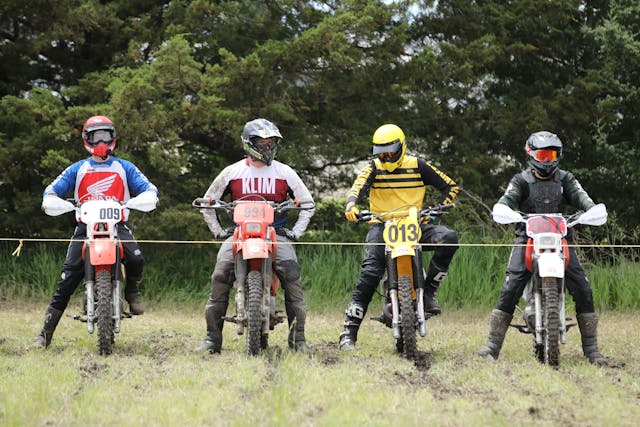
With that bike and others, there was always a mental line in the sand I needed to cross. I felt like I needed to have it all figured out before doing anything.
The thing is, every moment of Six Ways was a figuring-out. Every new weekend, every new form of racing and new bike setup, I was the new guy, struggling to get comfortable. Everything got easier once I realized the discomfort was the reason for all of it.
In a way, I had been here before. For more than half of my life I’ve sought physical discomfort weekly or even daily. I’ve run tens of thousands of miles and ridden a bicycle far more. Growing up, that discomfort made it easier to climb other mental hurdles: If I was able to go out on a Sunday morning and run 20 miles on Kansas dirt roads, I figured, anything else that day was no problem. Then came college. A career and a relationship. Adult responsibilities. Each passing month brought less discomfort and more soft. Tea and a warm blanket in the mornings replaced hours of effort and focus.
That grass was green, but after a few years, a longing had me looking at jumping back over the fence.
On paper, Six Ways was sexy. That’s probably why it was such an easy sell to everyone who helped, from friends to sponsors and managers. But spending most of a year taking a motorcycle to the track is so much more than helmet hustle. The majority of time on this project went to wrenching and driving the van. When you add in a tight schedule and a day job, plus getting all the proper parts ordered and on hand at the right time, then consider the time to swap the bike between disciplines—often a near-complete teardown—and then consider maintaining something like a home life? None of my stress came from my time actually on the XR. All the lost sleep went to housekeeping behind the scenes.
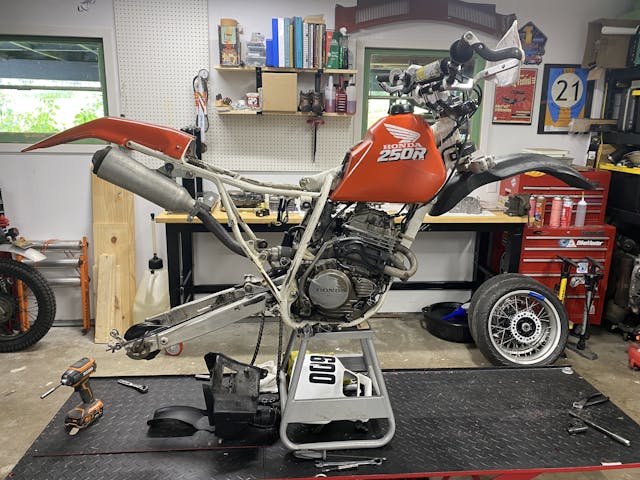
None of this should be taken as a complaint. It’s just that the fantasy of throwing some gear in a van and driving off for a good weekend at speed is exactly that. There’s always something to do and another place to burn your paycheck. Old hands here will laugh at how it took me a project like this to learn that ancient lesson—there’s no such thing as “just going racing.”
Another odd lesson was how you sometimes have to force yourself to stress about the right things. There were so many ways to lose sleep by trying to plan each moment. Do I park near the bathrooms? Who to talk to when I arrive? Where is registration? Should I pack all my own food, or will the track have a vendor? Rain gear? How many bikes in my class? None of that actually matters in the grand scheme, yet it occupied so much of my mental capacity those first few events. By the time I reached the starting line at Heartland Motofest, in May, halfway through the year, I was burned out. Then I got better and better at letting the little things go. I started aiming my mental energy at what I could control. Or at least the stuff worth worrying about.
It all felt like Groundhog Day, where Bill Murray relives the same day over and over. Each event held a build-up, mental and physical, then the actual race, then a drive home that took us back to square one. Followed by yet another new form of racing, another challenge to prepare for, right now. I was often planning for the next event while driving home from the last one. Everything learned at each race was written down in my notes and then pushed from my brain, because it usually didn’t apply to what came next. (There’s only so much memory left when you count all the random Corvair factoids and attempts not to forget my anniversary.)
A few techniques carried over weekend to weekend, but by and large, over the course of a year, the Honda became six different motorcycles, and I became six different riders. No surprise that some of those motorcycles worked better than others. The XR handled cross-country racing and motocross superbly, of course. The bike was designed for similar use, and with some specific tuning and suspension setup, it became a great machine. The Honda was also a better road racer than it had any right to be, but that came largely from spending thousands on Race Tech suspension, giant front brakes, and custom wheels I built. Road racing was also the only time I wanted more power, but you have to know when to stop. A 30-year-old, 250-cc thumper can only do so much without cubic dollars.
Also unsurprising was how I didn’t love every bit of the racing. Mostly because you occasionally just can’t get around the fact that you need a specific tool for certain work. Flat-track and trials were great, but if I go back, I’m buying a purpose-built bike. The gap between what was needed and what the Honda could offer was just too great, and it too often got in the way of learning.
Ice racing wrapped up this project. Several weeks ago, Hagerty associate editor Nate Petroelje hopped in the van to crew at my final event. Walking back to the Chevy after registration—the usual asking of questions and knowing absolutely nothing—his eyes grew big: “I can’t believe you did this six times.”
That was Nate’s first event with me, and he doesn’t go to race tracks often. His comment was rooted in stress, all those small things you want to plan but can’t. It had taken five weekends, but my mental capacity was no longer being wasted there.
That’s called growth, I think. We are each predisposed to handle a certain amount of stress. If you’re smart, you spend that space only on things that deserve it.
After all this, I don’t consider myself a racer. If anything, discomfort made me a problem-solver. It’s fight-or-flight: The more you fight and succeed, the more confidence you take into the unexpected. Years ago, I met a man who had spent decades fabricating sheet-metal body panels for full classics. He daily-drove a vintage Packard. “Once you know how to fix them,” he told me, “you’re less scared to damage them.” It took six events, but figuratively speaking, I finally figured out how to fix “it.” I was also reminded just how much I enjoy the literal side of fixing. Creating something. Assembling piston to cylinder to connecting rod, researching, building. All that long-night wrenching followed by 14-hour drives where my only vocalization was ordering at the Wendy’s drive-thru. All stuff I didn’t realize I was signing up for, and what I ended up loving the most.
From the onset, there was a tiny piece of me that wanted to use this story to talk about affordable racing. Turns out there’s no such thing. My plan to “just scrape by” lasted about as long as the meager budget I sold to the editor of this site. But in retrospect, this wasn’t about money. Instead, the point is to go out and do the thing. Whatever that thing is, at whatever level you can swing. If you’re even slightly interested, if it’s been on your list, if you think you might be good at it? Consider this your kick in the ass. Take the first step. I went from a guy who owned a broken-down old Honda dirt bike to a …
What am I, now that I’ve gone through all this?
I’m just a guy who did it. Who learned something about himself.
The fear has subsided. I’m taking a bike to the track this year, but it’ll be a little different, and there’ll be a bit more focus. I know I can do it, because anyone can. Either way, one year and so many miles later, I’ve reached the best part: I’m just having fun.


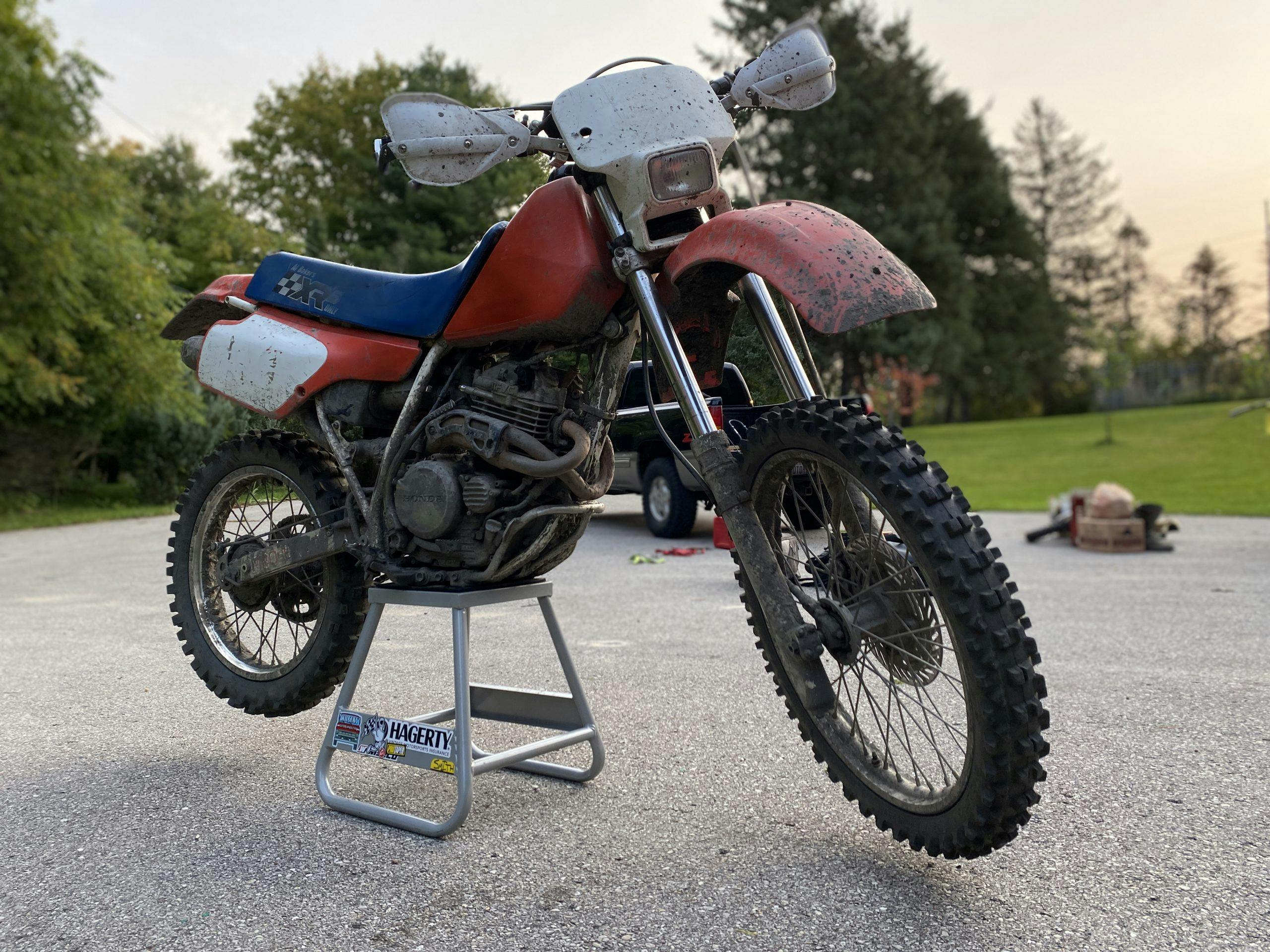
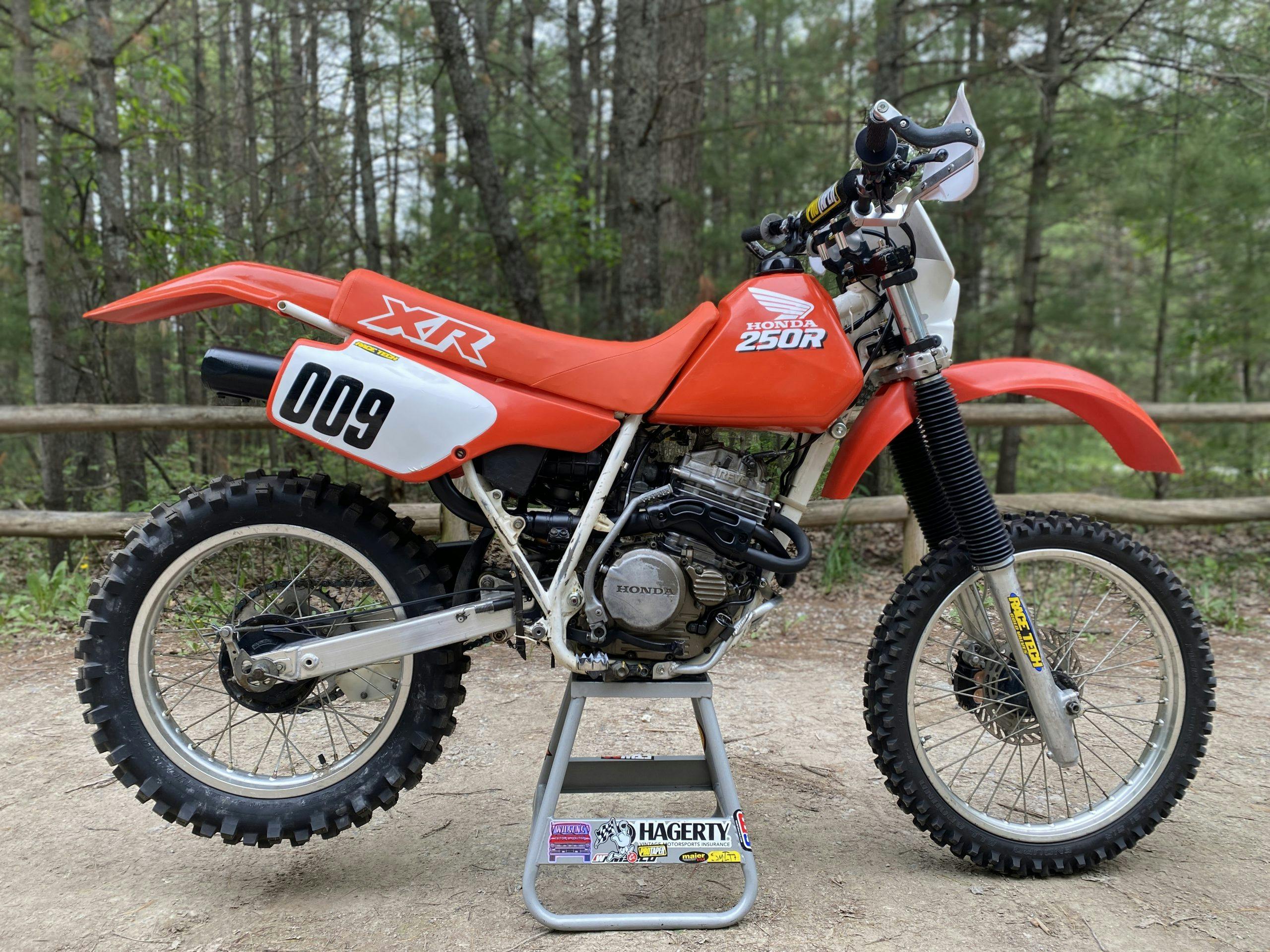
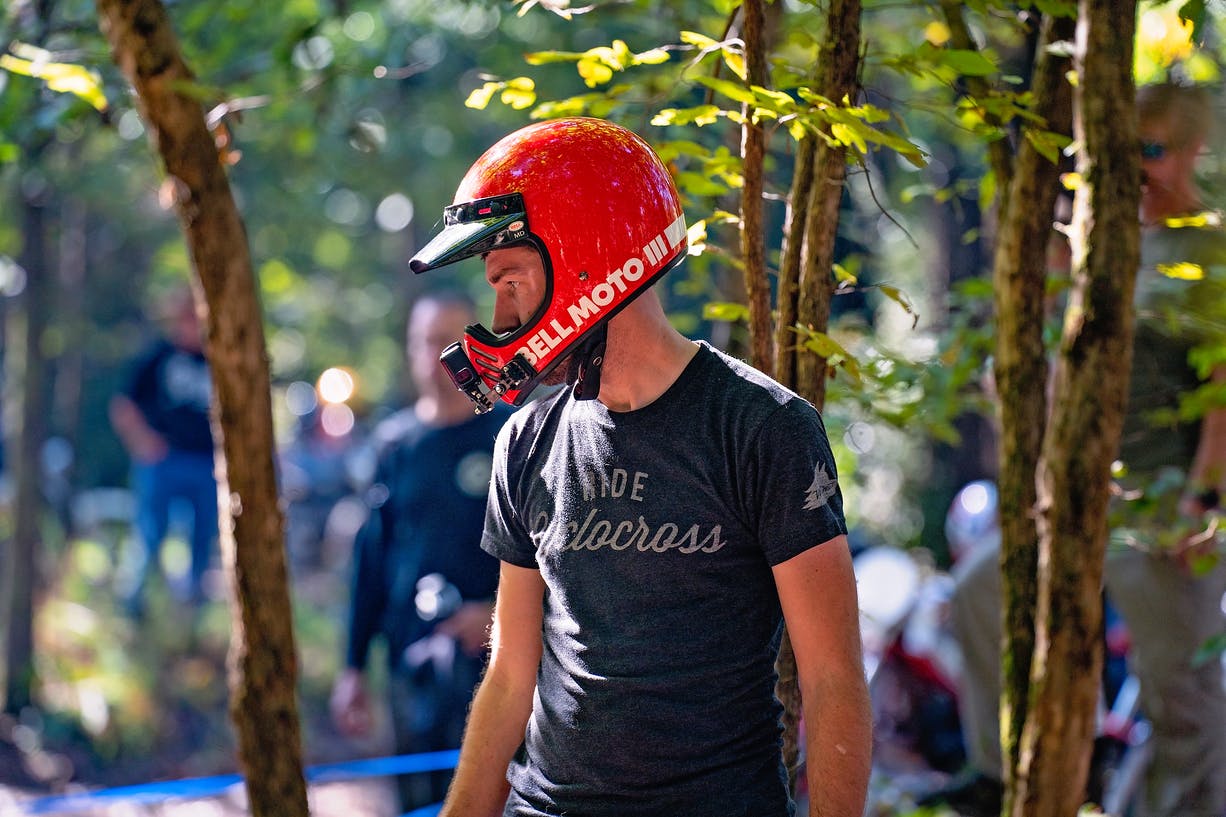
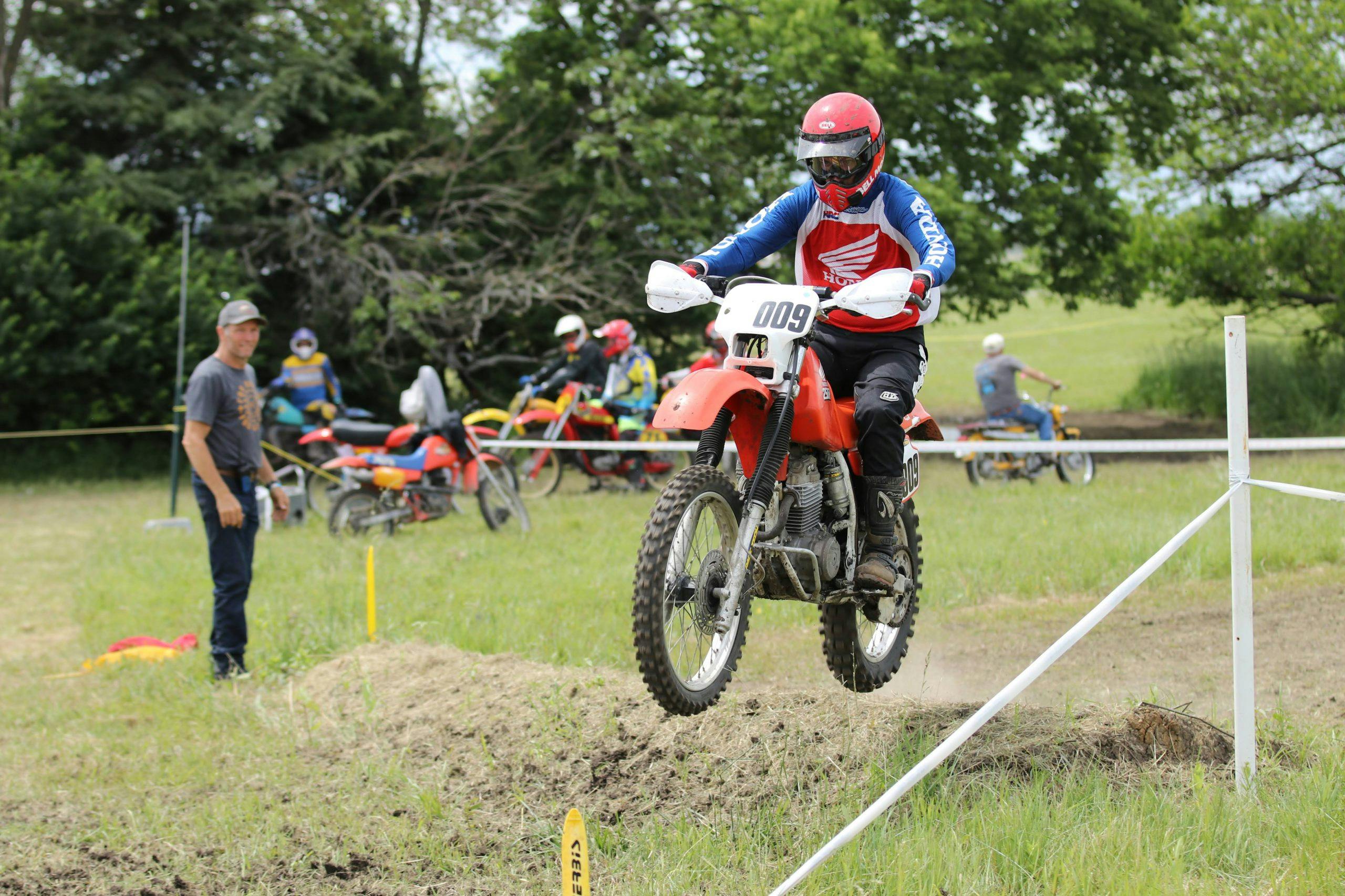
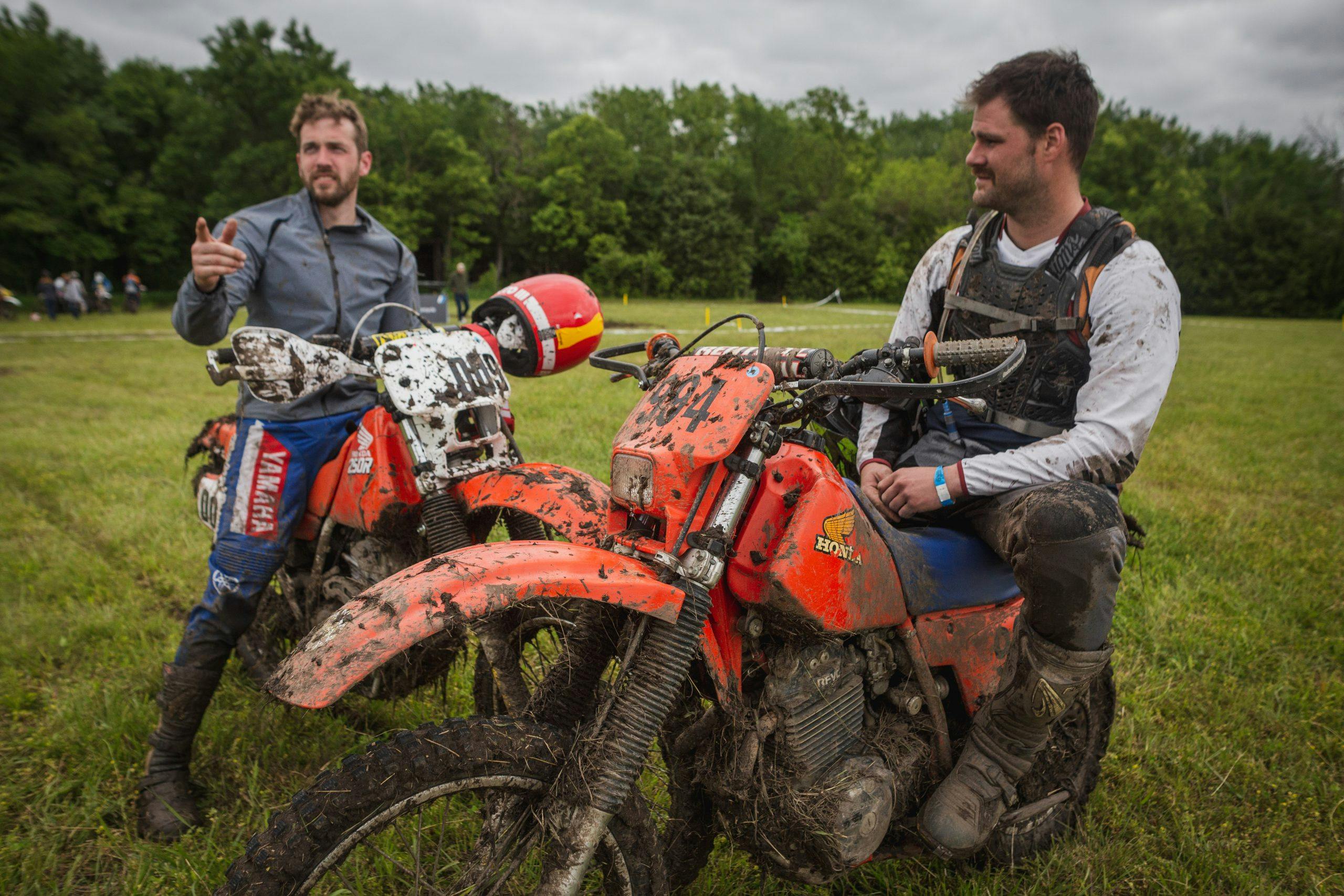
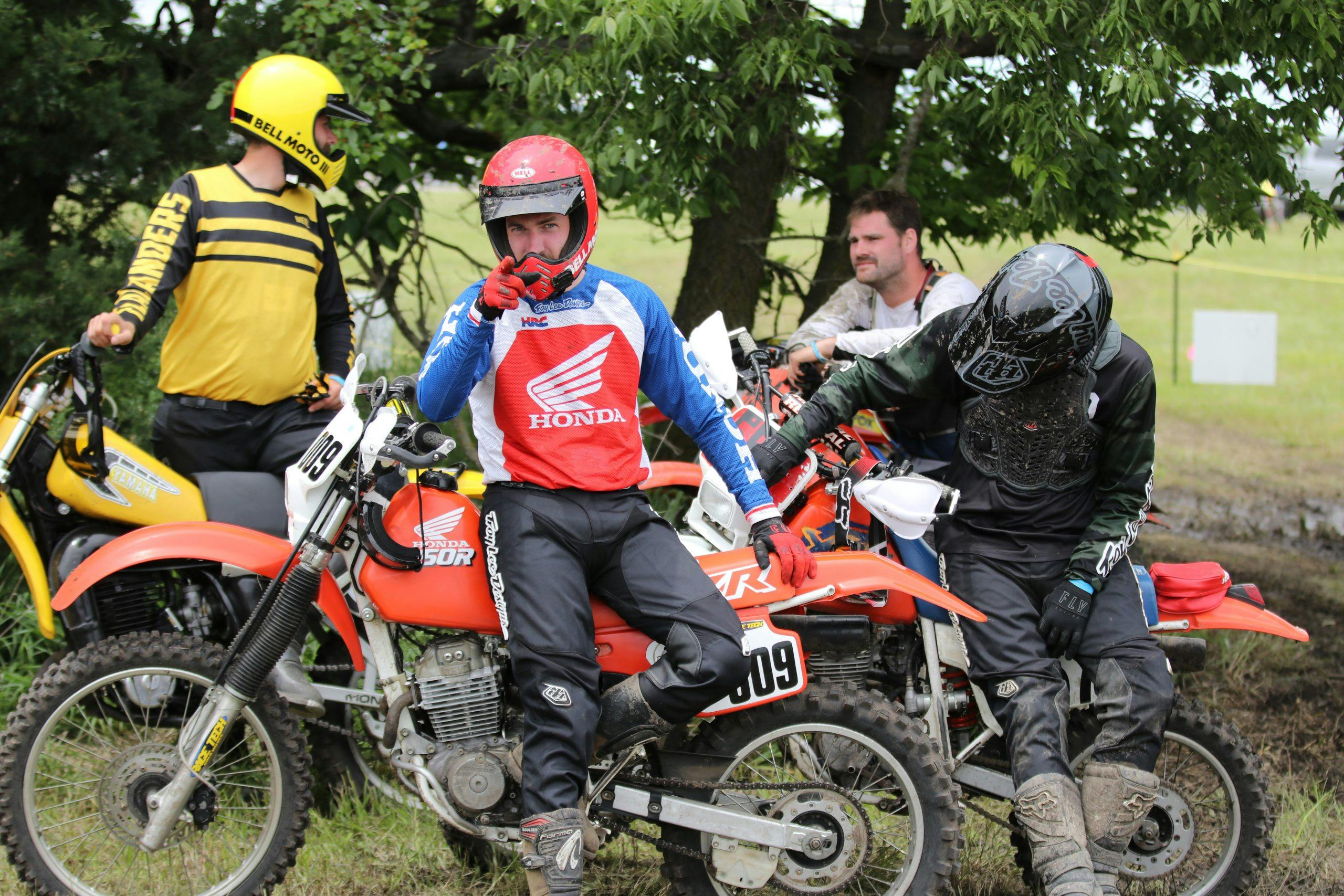
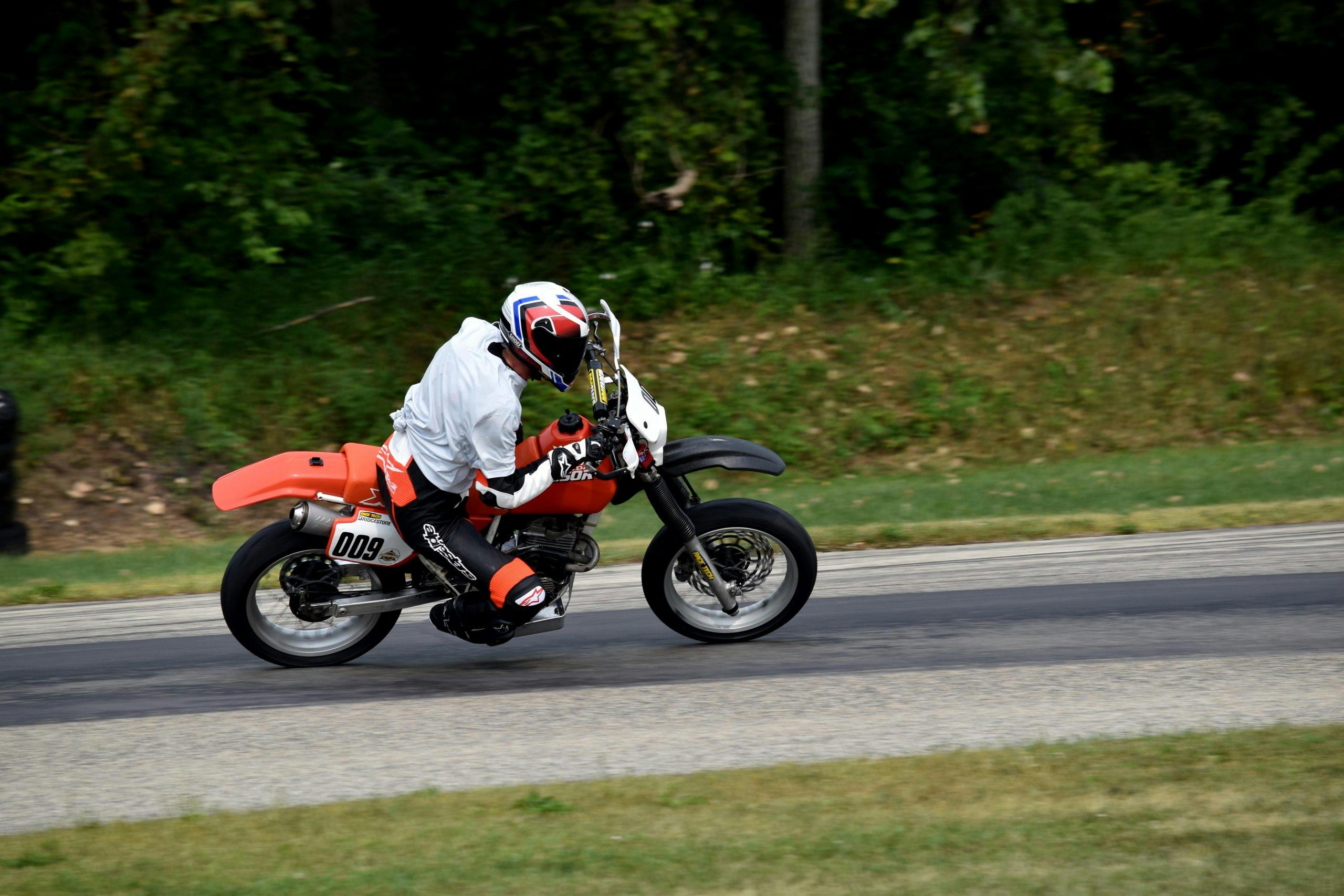
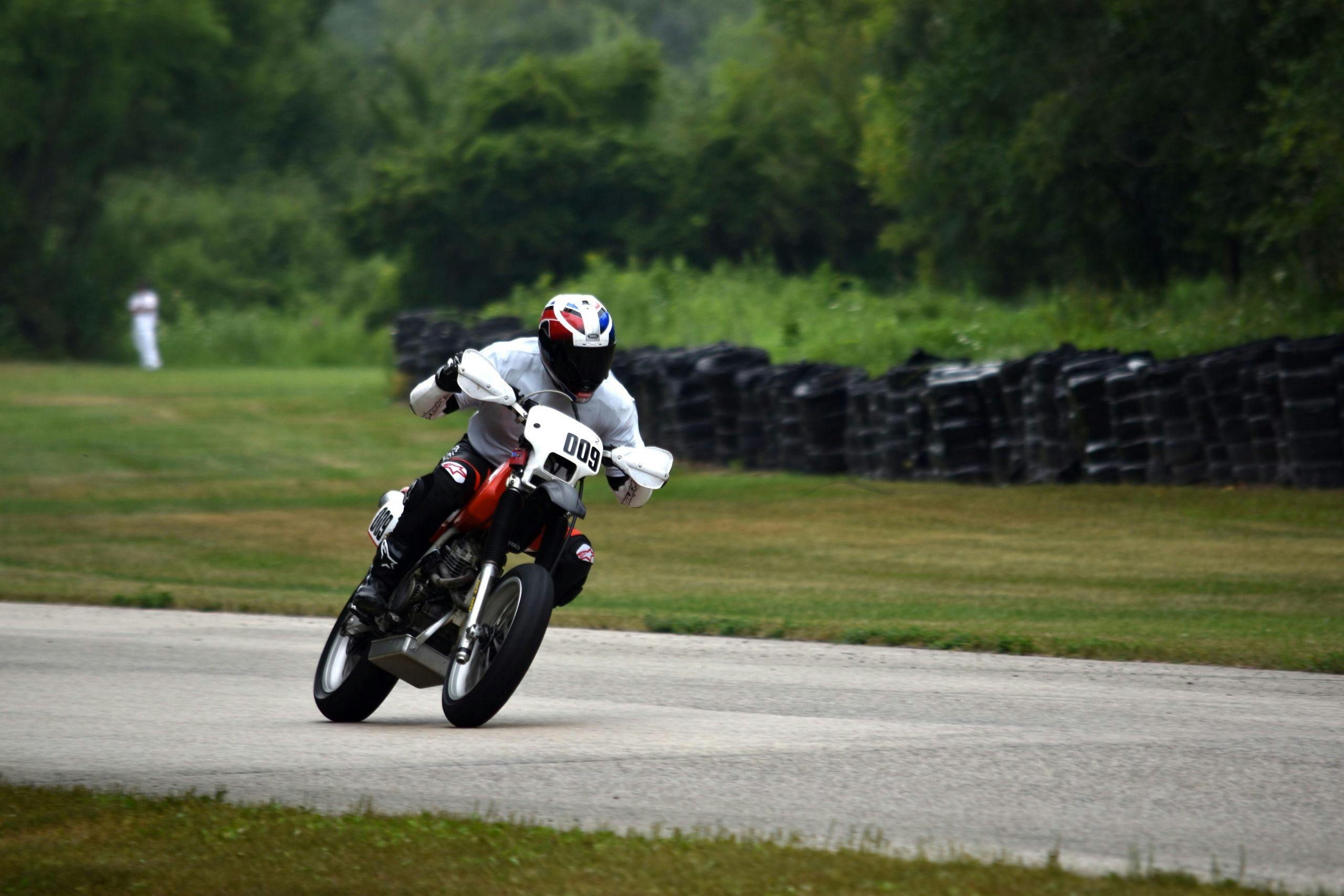
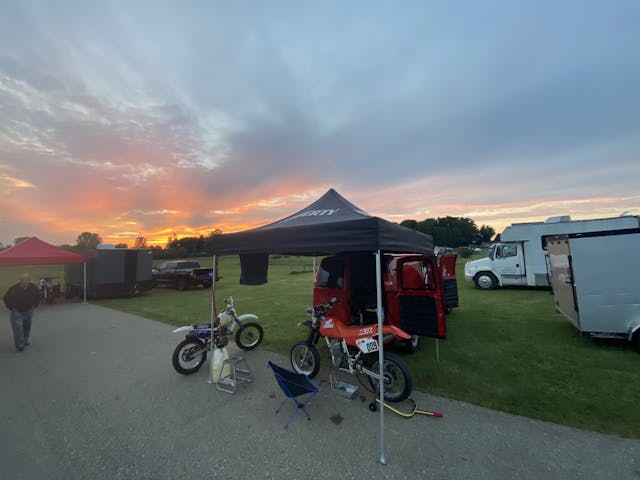
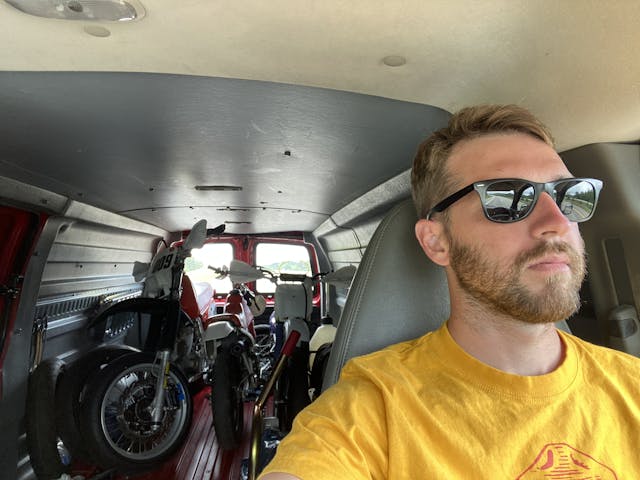















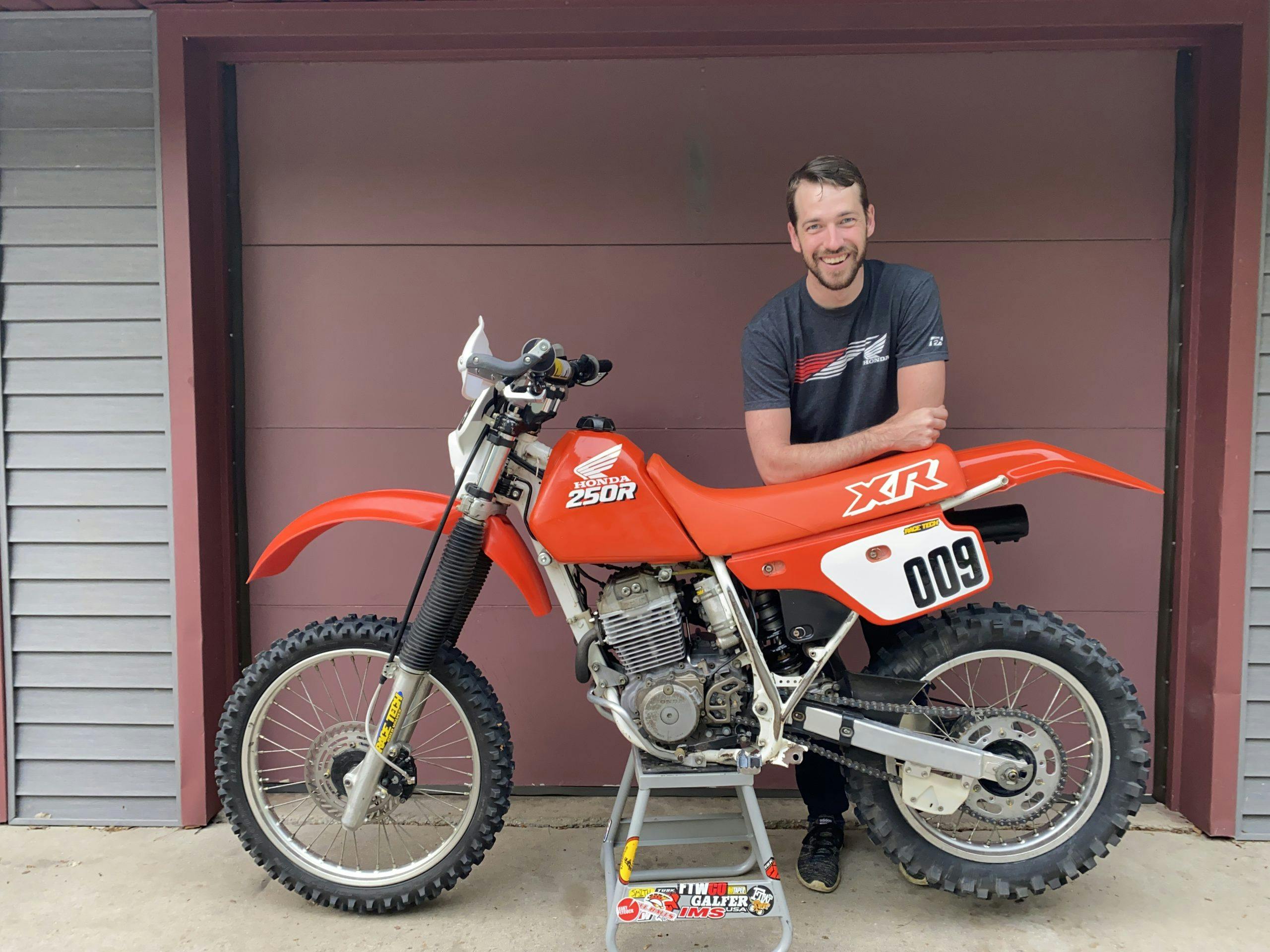
Very neat but I want to hear more about the actual riding! How did you finish? What was fun about each type of racing and what surprised about each.
Good on you Kyle. I’ve had an ‘84 XR250R since ‘86 when I bought it with engine pieces in a box. Rebuilt the upper end and been running great since. Love trail riding with it
Thanks Leo! These really are great motorcycles. Enjoyable projects and even more fun to ride!